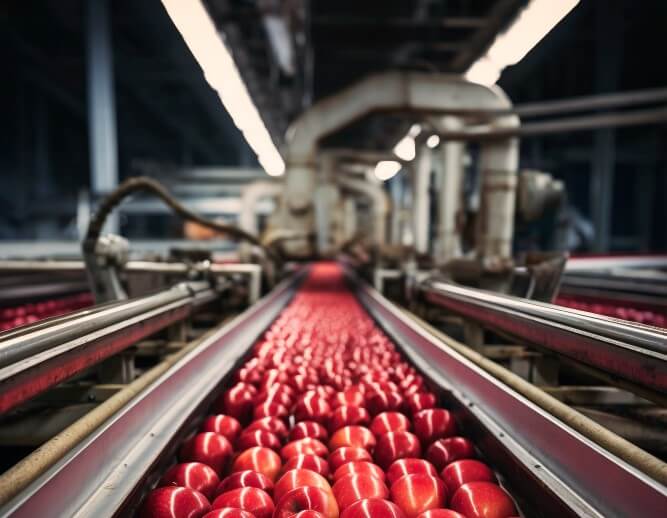Adapting to the Winds of Change: 5 Key Trends Shaping the Future of Food Manufacturing

As M&M Equipment, our expertise in procuring and selling used industrial food processing machinery gives us a unique vantage point to observe the evolving trends within the food manufacturing industry. Heading into 2024, the landscape is rapidly transforming, driven by technological advancements, changing consumer preferences, and a heightened focus on sustainability. Here, we delve into five pivotal trends that are set to redefine the industry, offering both challenges and opportunities for food manufacturers and equipment suppliers.
-
Sustainability and Environmental Stewardship
The push towards environmental sustainability is more pronounced than ever, with food manufacturers prioritizing waste reduction, energy conservation, and sustainable packaging. A notable example includes the adoption of water recycling systems to minimize water waste and the integration of energy-efficient technologies in processing equipment. Furthermore, biodegradable packaging alternatives, such as plant-based plastics, are becoming increasingly popular, reflecting a broader industry shift towards eco-friendly solutions. These initiatives not only cater to growing consumer demand for sustainable products but also pre-empt regulatory changes aimed at environmental conservation.
-
The Rise of Plant-Based Foods
The surge in consumer interest towards plant-based diets has led to a significant expansion in the market for vegan and vegetarian products. Manufacturers are now extending their product lines to include plant-based alternatives to meat, dairy, and other animal products. This expansion necessitates specialized processing equipment capable of handling unique textures and compositions, such as high-moisture extruders for plant-based meats and fermenters for vegan dairy products. The demand for these technologies underscores the industry’s shift towards more diverse food offerings.
-
Enhancing Supply Chain Resilience
Recent global events have underscored the importance of robust supply chains. In response, food manufacturers are actively seeking ways to enhance their supply chain resilience, including diversifying supply sources and implementing advanced tracking and predictive analytics technologies. For instance, blockchain technology is being explored for its potential to improve transparency and traceability in the supply chain, enabling manufacturers to quickly trace raw materials back to their sources in the event of a contamination issue.
-
Technological Innovations in Manufacturing
The integration of cutting-edge technologies such as artificial intelligence (AI), machine learning, robotics, and the Internet of Things (IoT) is transforming food processing and packaging. These technologies offer numerous benefits, including optimizing production lines, improving food safety through enhanced quality control measures, and reducing labor costs. Robotic systems, for example, are being used for tasks ranging from packaging to precision cutting, while AI-driven algorithms help in predicting maintenance needs, thereby reducing downtime.
-
Navigating Regulatory Compliance
As governments worldwide tighten food safety and quality regulations, compliance becomes increasingly complex. Manufacturers must adapt by upgrading their processing equipment and practices. This includes investing in advanced detection and sanitation technologies to meet higher standards for food safety, such as hyperspectral imaging systems for detecting foreign objects and automated sanitation equipment for ensuring cleanliness.
At M&M Equipment, we’re dedicated to supporting our clients through these dynamic changes, providing access to a wide range of high-quality, used processing equipment tailored to meet the evolving demands of the food manufacturing industry. By staying abreast of these trends, we help our clients adapt and thrive in an increasingly competitive and regulated market.
